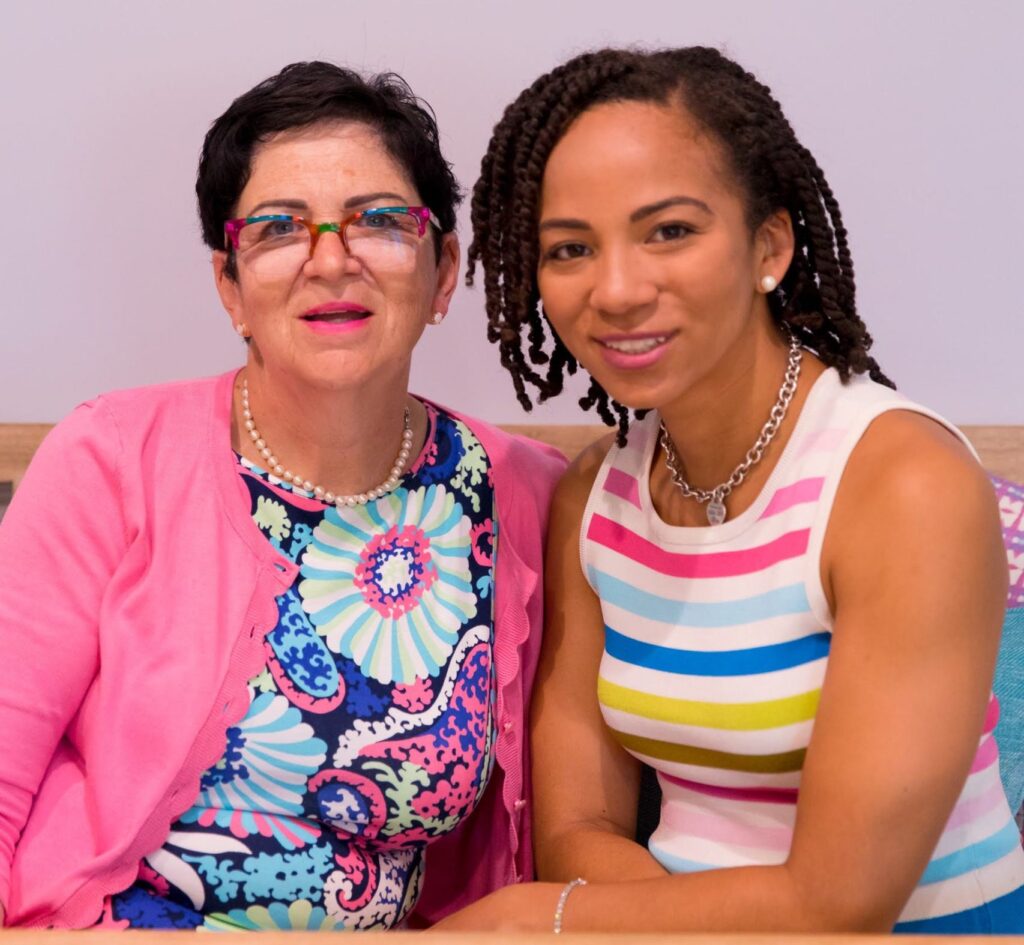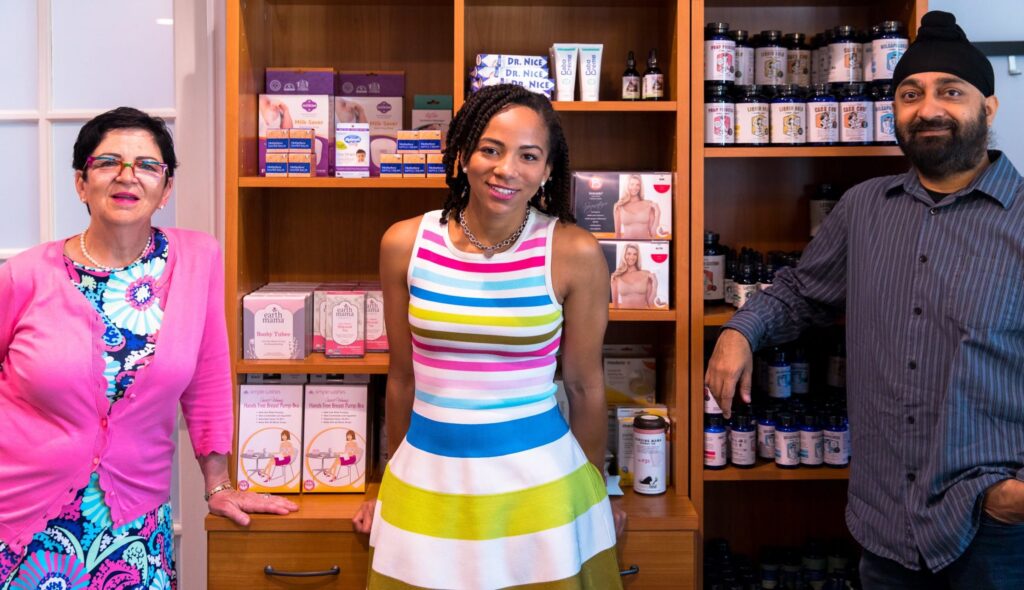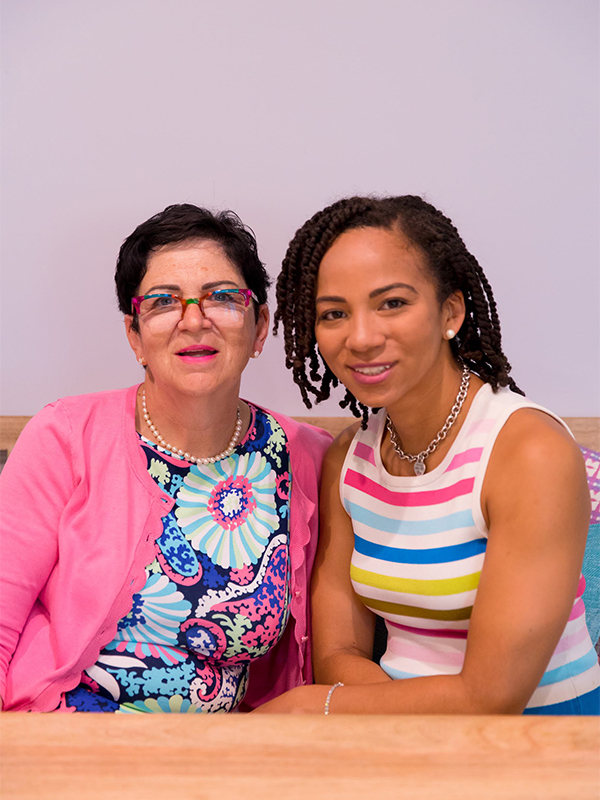Cries for help from new moms has become the norm for the mother-daughter entrepreneur duo Melissa and Linda Hanna. They remember one particular evening fairly vividly.
“We had a mother with a young baby who was very despondent and told us that she wanted to walk into traffic on a Friday night at 8pm,” recalls Linda, a practicing nurse for more than 30 years. “That shook us all up quite a bit. I’m not saying we saved her life, but we were able to avert what could have been a psychiatric emergency.”
Discussing women’s and maternal health challenges were common dinner table conversations at the Hanna household. In fact, dinners were oftentimes interrupted with text messages from doctors trying to reach Linda for information on mothers who’d recently given birth. As a registered nurse and international board-certified lactation consultant at Cedars-Sinai Medical Center in Los Angeles, she was the linchpin in ensuring the caretaking of mothers before and after they give birth.
The extended work hours didn’t go unnoticed by Melissa, and it was the impetus for launching Mahmee—the mother-daughter duo’s all-in-one care platform (launched with third cofounder Sunny Walia), for which Linda serves as the chief nursing officer. The care coordination startup was created to be a through line for connecting mothers with a range of medical professionals for prenatal and postpartum care.
“The hallmark story for building the Mahmee platform was about what providers like my mother were experiencing in supporting the parents,” says Melissa, co-founder and CEO of the maternal health care app. “There is a lot of communication and collaboration that goes into providing the most comprehensive experience to a new or expecting parent.” Prior to launching Mahmee, Melissa served as assistant director of the Eugene Lang Entrepreneurship Center at Columbia Business School.

Fragmented maternal care across the healthcare system has inhibited providers from having a full understanding of a patient’s medical conditions. Studies have found that a lack of collaboration among health professionals has been linked to the maternal mortality crisis, particularly in the African-American community. Knowing this, Melissa made it her mission to establish a diversified and unified ecosystem of 750 healthcare practices and community-based programs to connect moms of color—and in under-resourced areas—access to professionals such as doulas, midwives, lactation consultants and even therapists. She is also adamant about ensuring the network of birth workers using the Mahmee platform is reflective of the communities being served.
“More than half of [Mahmee’s] population are professionals of color,” says Melissa. “[Expectant mothers’] can find community-based doulas who are culturally competent, understand [their] experience and can meet you where you’re at.”
Since launching in 2014, Mahmee has expanded exponentially. It’s now present in 48 states and is home to more than 1,000 providers and organizations. The platform has positioned itself to become the largest and most diverse network of community-based providers for maternal health in the country that are all at the service of expecting mothers.

For Linda, who handles the clinical side of operations for Mahmee and runs her own mobile breastfeeding center that’s connected to the digital platform, integrated care is paramount to the postnatal recovery of mothers.
“This cannot be a one and done,” says Linda. “We’re constantly threading the needle for providers, showing them the continuation of care to know the [mother’s] whole storyline.”
While a wave of Black tech founders are emerging to help mitigate the maternal health crisis, Mahmee has not only identified the significance of the matter but the urgency to find solutions. With Serena Williams and Mark Cuban being among the first A-List investors, Mahmee is gaining even more ground with its latest round of funding, which will further its mission to bring even more awareness to one particular maternal health matter: postpartum depression.
Studies have shown that after giving birth, up to 80 percent of women experience the “baby blues,” which includes anxiety and mood swings that typically can last an estimated two weeks. But only about 10 to 20 percent of women indicate feelings of clinical depression. The numbers are even more depressing among Black women, who have the highest mortality rate compared to other racial groups. Maternal mortality among Black women has only gotten worse amid the Covid-19 pandemic, prompting the Black Maternal Health Caucus—made up of a group of state representatives and senators in Congress—to introduce the Black Maternal Health Momnibus Act. It’s a series of 12 bills that address existing gaps in policy solutions to the maternal health crisis. As of today, only one bill has been signed into law.
“Women’s health matters, and what we really want to solve is how we shift the way the [health care] industry treats mothers,” says Melissa. “Serving new and expectant mothers is a billion-dollar opportunity and doing it in a way that meets the needs of underserved and overlooked mothers is a critical aspect of this work.”







